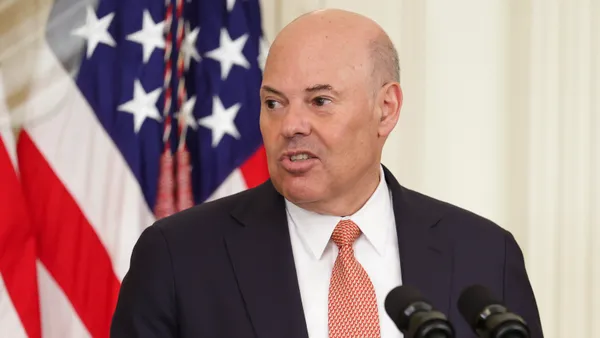Dive Brief:
- Workers are increasingly bringing theology into the office, factory, retail space, and public sphere and expecting greater and sometimes surprising forms of accommodation, according to an article from Knowledge@Wharton.
- As a result, religious conflict in the American workplace is up.
- For example, the Supreme Court is considering whether Abercrombie & Fitch overstepped its image-conscious practices and veered into religious discrimination when it refused employment to a job applicant wearing a hijab. A Hamden, Conn., firefighter filed a lawsuit against the town claiming a pattern of harassment because, as a Jehovah’s Witness, he declined to march in a Memorial Day parade or raise a flag.
Dive Insight:
There is a case to be made for bringing religion into the workplace, experts say. Religion makes people happier, and happier means more productive. Employees who are permitted to discuss religion openly at work report having higher job-satisfaction levels, according to a 2014 study published in the Journal of Organizational Behavior.
But what happens when one employee’s increase in happiness means another’s discontent? Is proselytizing just a form of self-expression? “People are more inclined to bring their whole selves to work," says Stewart Friedman, director of Wharton’s Work/Life Integration Project. "It’s about family; it’s about who you are as a person. The problem with some religions is that they can be divisive, and so where it seems to me to make sense to draw the line is if you are professing your religious beliefs and that causes harm to other people. That’s a problem.”












